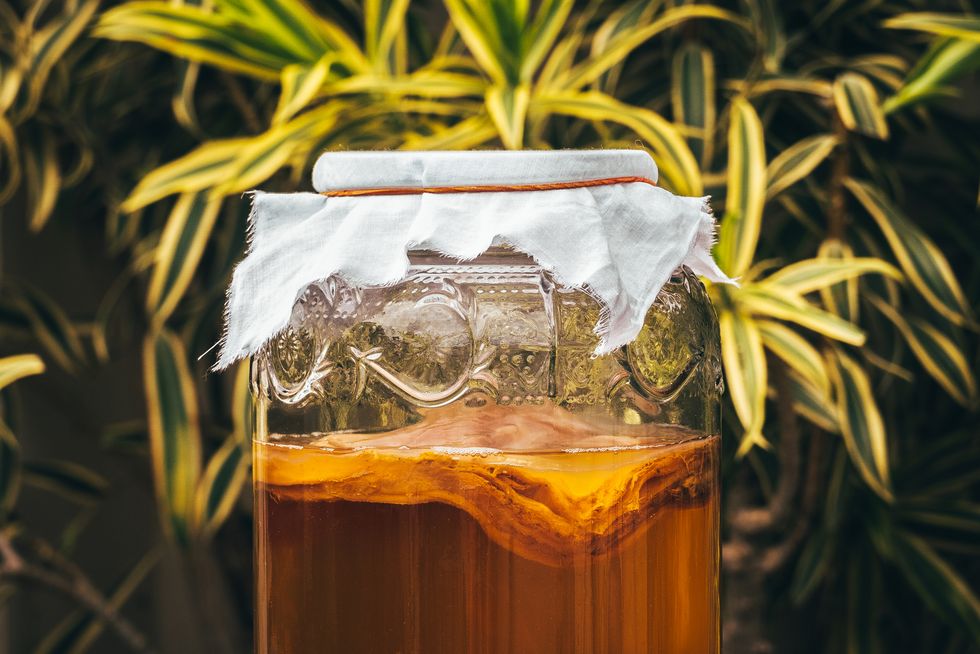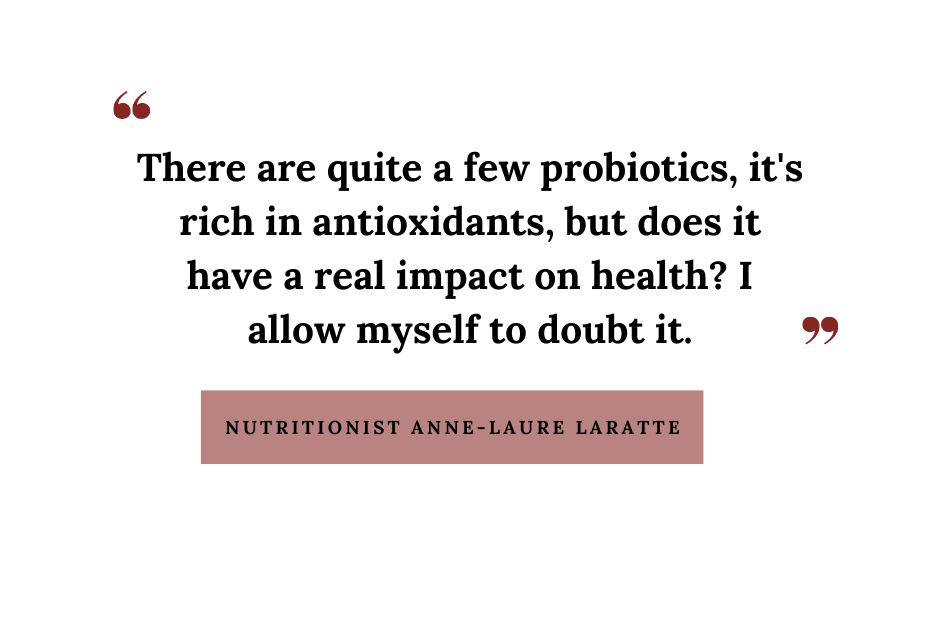Some sommeliers have realised that kefirs and kombuchas can open up new possibilities for their customers when it comes to drinks that complement complex dishes.
Kefirs and kombuchas are born from the action of dozens of microorganisms. If their health benefits remain uncertain, they fascinate more and more gourmets for their unparalleled taste in the world of drinks.
"It's a particular niche," said researcher Christophe Lavelle, who, at the National Museum of Natural History, studies kefirs from both a sociological and microbiological perspective. "There is something very mysterious about them."
So, what are kefirs, and their cousins, kombuchas? They are both produced by the action of dozens of different bacteria and yeasts, which are left to work for several days or weeks in water. In kefir, these microbes are gathered on soft, translucent grains. In kombucha, they are gathered on a "mother," a viscous membrane similar to that used to turn wine into vinegar.
Each time, a colony with a unique balance will work to transform sugar into new components that give rise to carbonated and tart drinks. These fermentation mechanisms are also the basis of well-known beverages, such as beer. The specificity of kefirs and kombuchas, beyond their very low alcohol character, is the richness and diversity of microbes used for a single drink.
Health factors originally drove the attraction for these drinks. Advocates say they boast a wide range of supposed benefits, in particular, thanks to the "probiotic" action that microorganisms exert once present in the digestive system. But there is no proof of this. Several studies – the latest in 2018 in the journal Annals of Epidemiology – have concluded that there is almost no work seriously assessing the real effects on human health of these beverages.
"There are quite a few probiotics, it's rich in antioxidants, but does it have a real impact on health? I allow myself to doubt it," nutritionist Anne-Laure Laratte admitted, adding that she was wary of any "magical food."
Stressing also that these drinks still contain a very small amount of alcohol and are therefore should be avoided for children and pregnant women, she nevertheless admits a dietary interest, but not for their direct effects.
"These are almost sugar-free drinks, so we're going to prefer that to sodas," says Laratte. "It's interesting to vary your drink instead of saying: 'water tires me, I’ll drink a Coke'."
It is this angle that is beginning to interest the world of gastronomy. Some sommeliers realize that kefirs and kombuchas open up new possibilities for their customers. By their gustatory complexity, they give the possibility of providing an accompaniment to complex dishes food without involving alcohol, providing an alternative to a fruit juice which would be inconceivable to drink as it would be, by nature, very sweet


